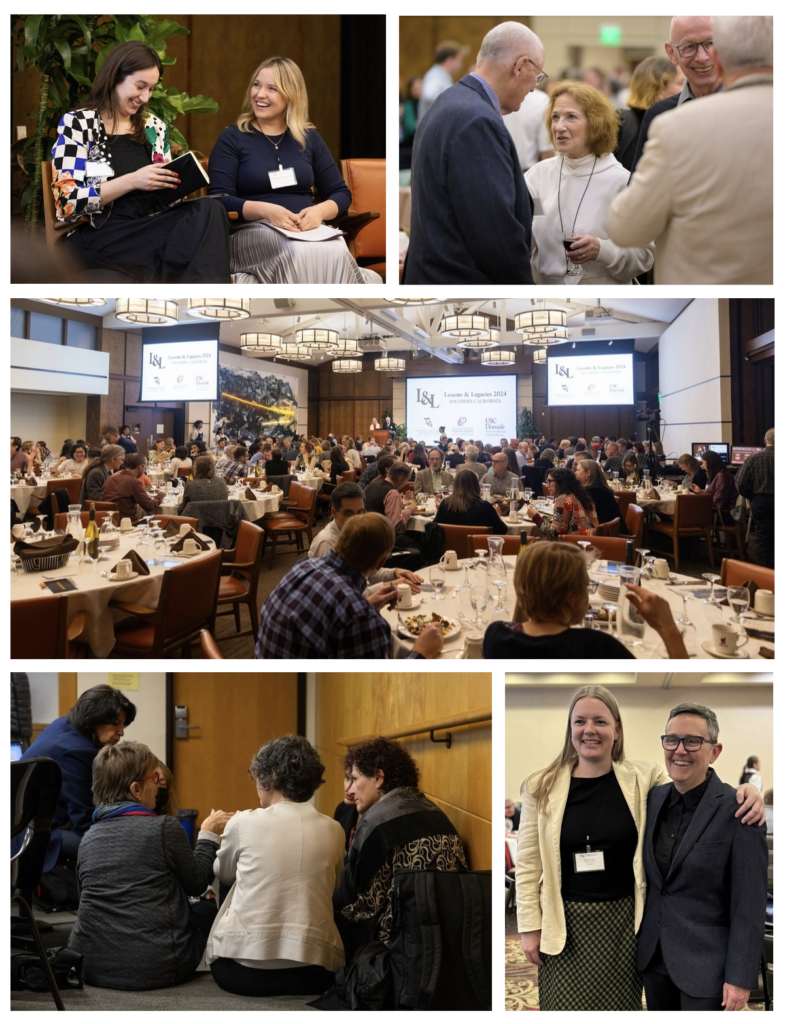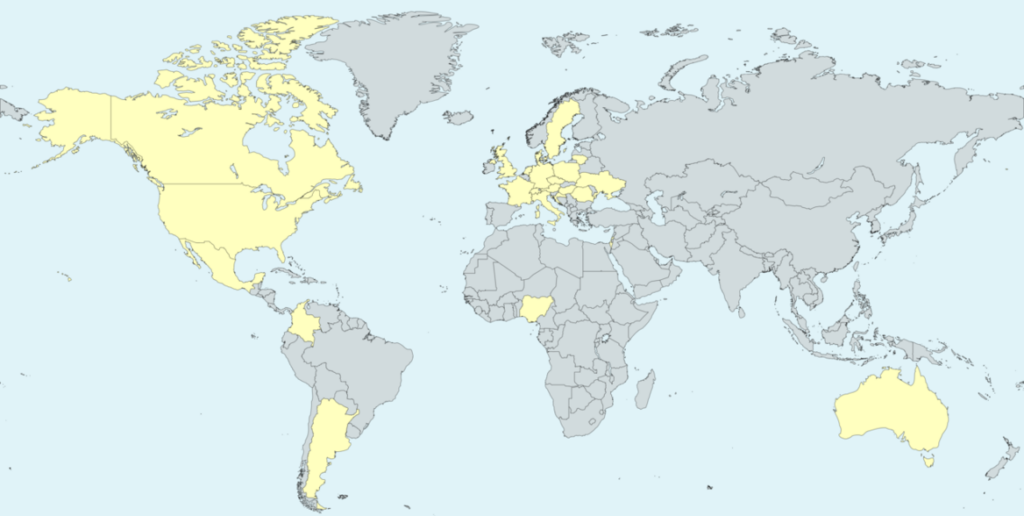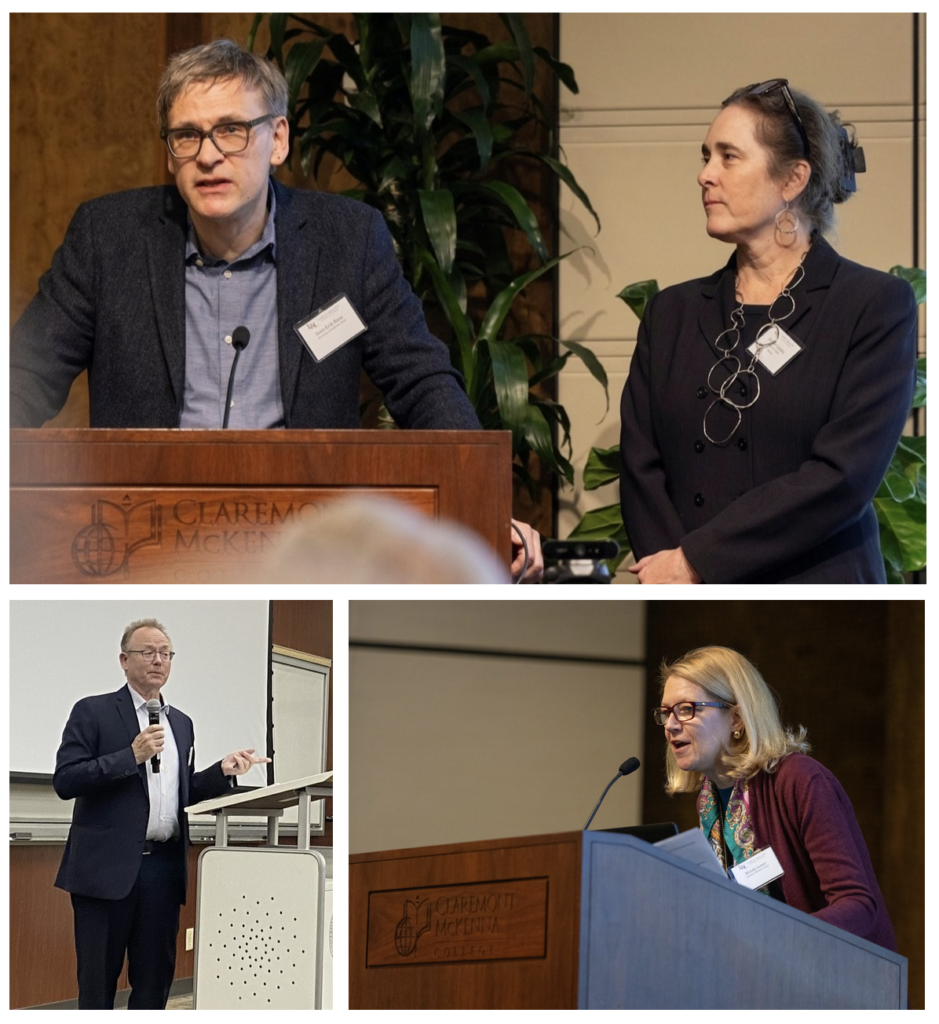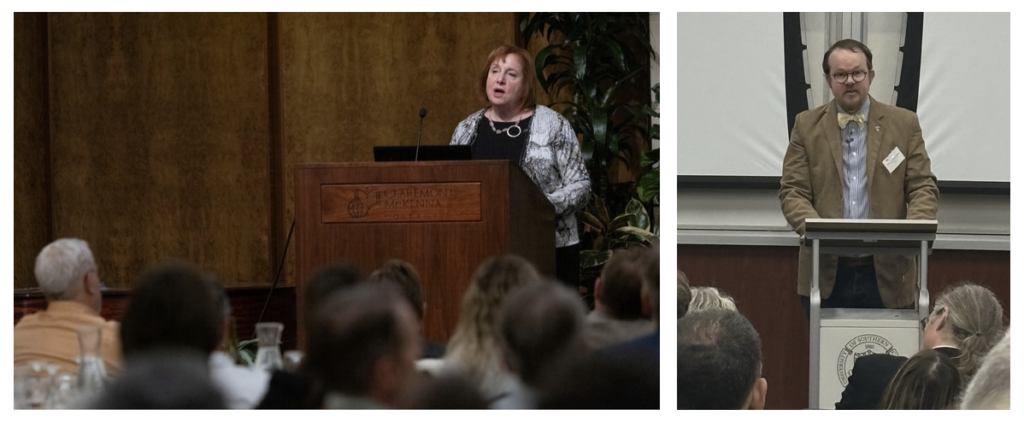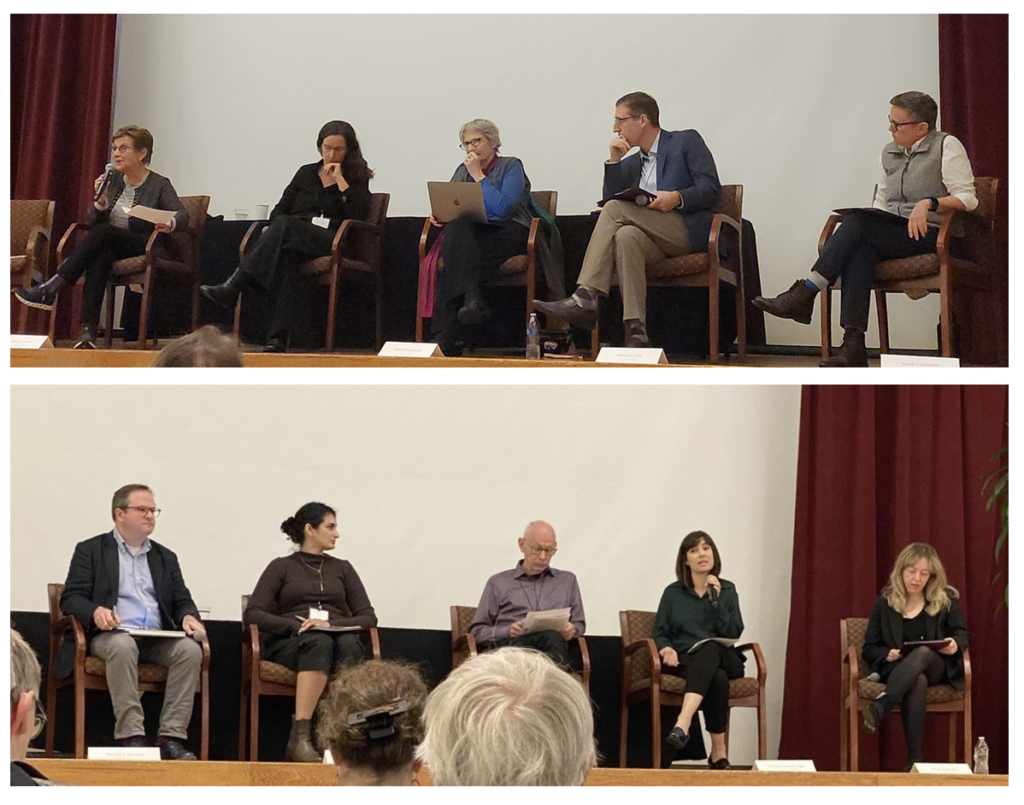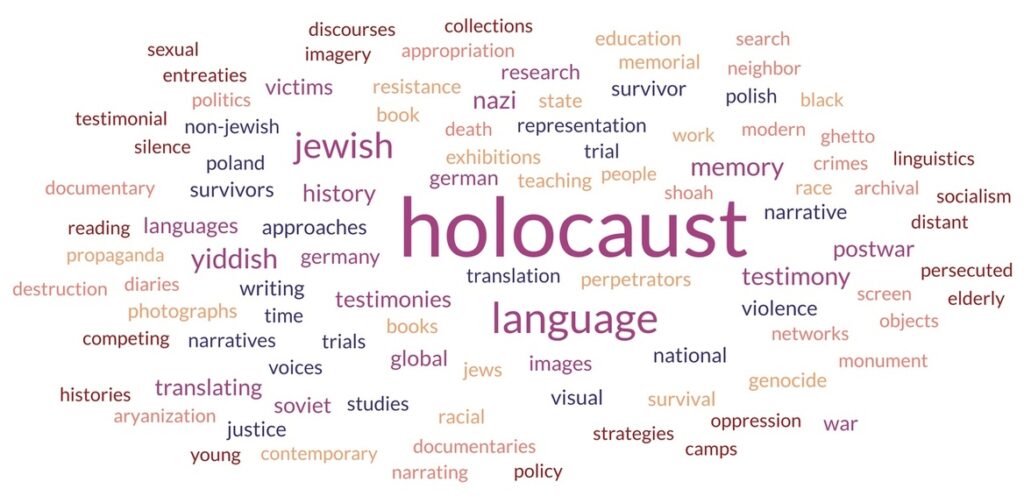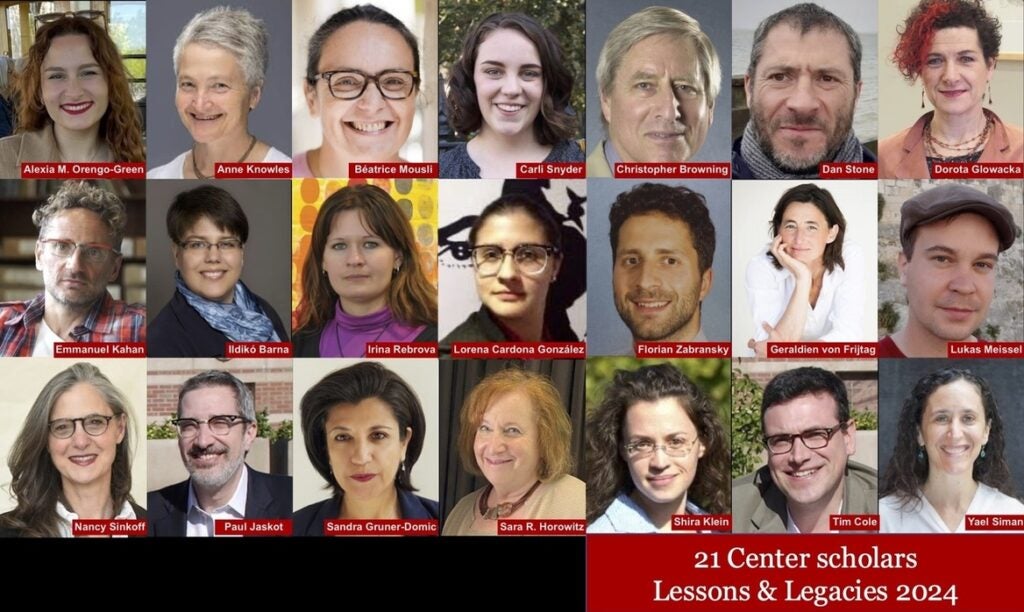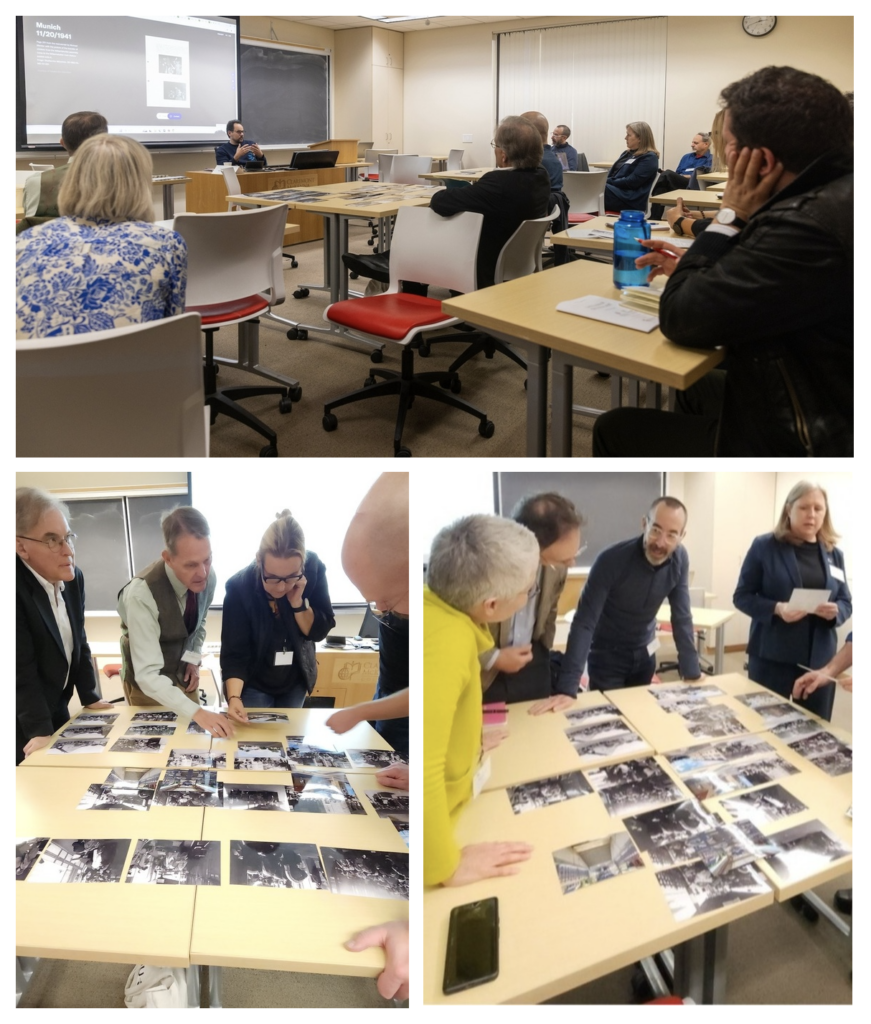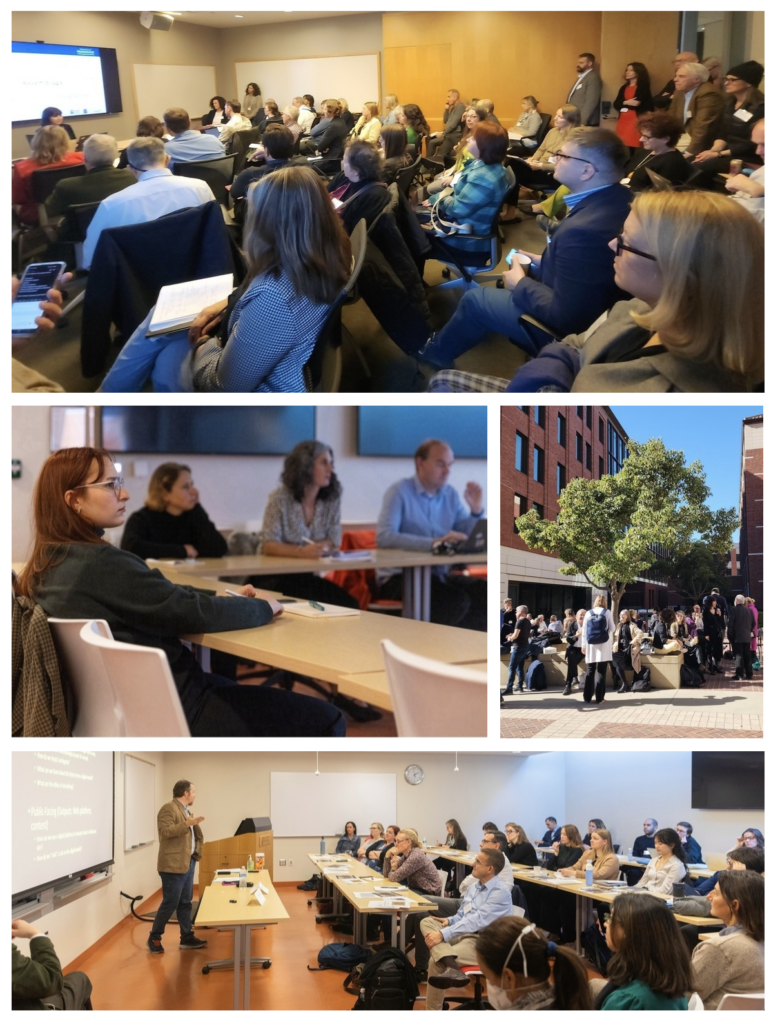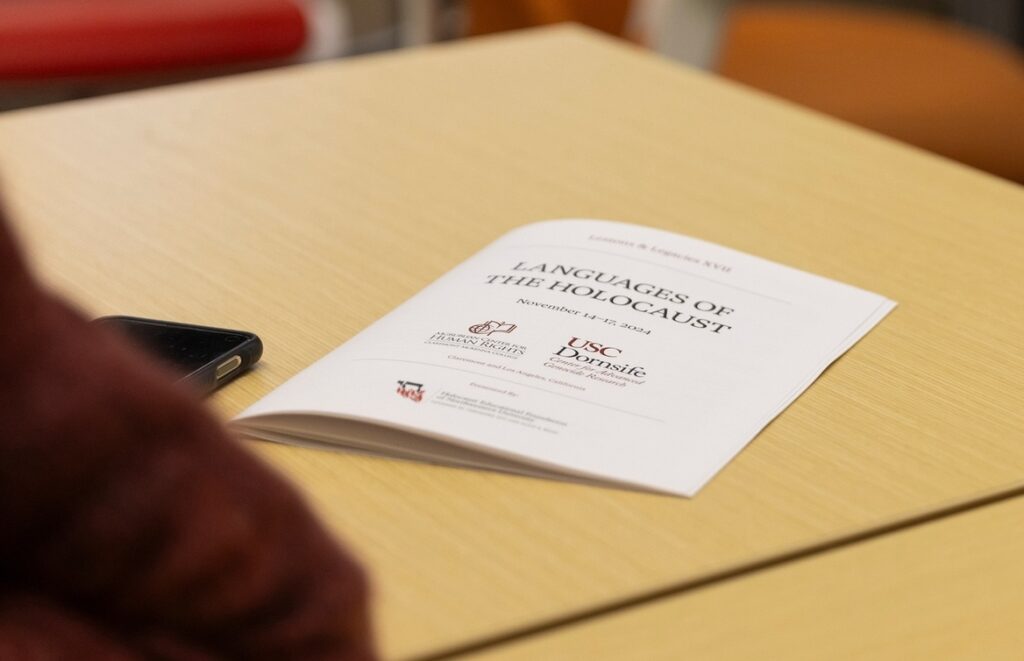Lessons & Legacies XVII: Languages of the Holocaust
November 14-17, 2024
Co-hosted by USC Dornsife Center for Advanced Genocide Research and Mrgublian Center for Human Rights at Claremont McKenna College
In November 2024, the USC Dornsife Center for Advanced Genocide Research had the honor of cohosting the largest international conference in Holocaust Studies entitled Lessons and Legacies. Sponsored by the Holocaust Educational Foundation at Northwestern University, the conference is held biennially in the United States. One of the three-day conference was held at USC.
The conference brought together over 220 senior and junior scholars to discuss groundbreaking research on the Holocaust. The special focus of this conference was on languages of the Holocaust and its history, representation, and memory. This included not only presentations about the specific languages in which people have spoken and written – during and about – the Holocaust, or the theme of translation (both literal and figurative) in the field of Holocaust Studies, but also the ways in which the Holocaust has been represented in a wide range of discourses (documentary, archival, testimonial, judicial, academic, artistic, non-verbal, photographic), including after the war by survivors and their descendants, scholars, artists, filmmakers, and journalists.
Scholars from 24 countries on 6 continents participated in the conference.
The conference was presented by the Holocaust Educational Foundation at Northwestern University. Conference organizers included Sarah Cushman (Director, Holocaust Educational Foundation at Northwestern University), conference co-chairs Jennifer Geddes (University of Virginia) and Sven-Erik Rose (University of California, Davis), conference seminar and workshop coordinator Anna Veprinska (University of Calgary), and conference cohosts Wendy Lower (Claremont McKenna College), Jonathan Petropoulos (Claremont McKenna College), and Wolf Gruner (USC Dornsife Center for Advanced Genocide Research).
Also part of the organizing team were Eva Seligman (Holocaust Educational Foundation at Northwestern University), Tiarra Maznick (Holocaust Educational Foundation at Northwestern University), Kirsti Zitar (Claremont McKenna College), and Martha Stroud (USC Dornsife Center for Advanced Genocide Research), who were supported by events staff at Claremont McKenna College and numerous student workers from Claremont McKenna College and USC.
Over the course of the conference, scholars participated in 31 scholarly panels, seven multi-day seminars that enabled groups of scholars to discuss specific topics, eight hands-on workshops, roundtables and plenaries, two keynote lectures, and two special sessions.
The two conference keynote speakers were both former Shapiro Scholars in Residence at our Center: Sara R. Horowitz (York University), who spoke about the intimate grammar of Holocaust memory, and Christopher Browning (University of North Carolina, Chapel Hill), whose keynote was an autobiographical look back at what led to the publication of Ordinary Men and the responses to it at the time. Since Professor Browning could not attend in person, his former student Waitman Wade Beorn (Northumbria University) read his keynote address, which was followed by reflections on Browning’s work by Doris Bergen (University of Toronto), Laura Brade (Park School of Baltimore), and Thomas Pegelow Kaplan (University of Colorado Boulder).
Other special presentations included a welcome to Claremont McKenna College from the college’s president Hiram Chodosh prior to the opening night plenary featuring three emerging scholars, a special session with John K. Roth (Professor Emeritus, Claremont McKenna College) who presented on teaching the Holocaust in today’s difficult environments, a roundtable on Holocaust Studies in the present moment (particularly post-October 7, 2023), a Junior Scholar Spotlight session with presentations by three junior scholars with responses by paired faculty mentors, and a closing plenary where several scholars offered their concluding reflections on the conference and the present state of Holocaust Studies.
Below find a word cloud generated from the titles of the panel, workshop, and seminar presentations, revealing prevalent conference themes.
The Saturday program at USC included the Awards Ceremony where Bill Deverell (Divisional Dean for the Social Sciences at USC Dornsife College of Letters, Arts and Sciences) welcomed conference attendees to USC. The 2024 Distinguished Achievement Awards were presented to Debórah Dwork (The Graduate Center – CUNY), Barbara Engelking (The Polish Center for Holocaust Research), Henry “Hank” Greenspan (University of Michigan, Emeritus), and Berel Lang (Wesleyan University, Emeritus). As the leader of ceremonies, Geoffrey Giles (University of Florida) presented retirement awards to Therkel Straede (University of Southern Denmark) and Edward Westermann (Texas A&M University). He also offered remembrances of scholars who have passed away since the last Lessons & Legacies conference, including Yehuda Bauer, Michael Brown, Alon Confino, Jeffry Diefendorf, Larry Langer, Uta Larkey, and Nechama Tec.
Many of the Center’s affiliated scholars, former fellows, and past visiting scholars shared their work at the conference (pictured below), as well as more than two dozen former guest speakers, researchers, and conference presenters who have visited the Center.
Additionally, Maximilian Strnad (Public History, City of Munich) led a workshop about the #LastSeen Project, which gathers visual evidence of the Nazi mass deportations against Jews, Roma, and people with disabilities; analyzes and publishes those on a digital image atlas; and tells the stories of people identified on these photographs. (Explore the #LastSeen digital image atlas here.) The Center is a founding institutional partner of the project. At the workshop, scholars got an introduction to the project, heard about the team’s discoveries, examined some of the photos, and discussed methods of image analysis.
To get a sense of the diversity of presenters, topics, and proceedings throughout the conference, read the full Lessons and Legacies conference program here.
The conference received additional support from the USC Shoah Foundation, the Gould Center for Humanistic Studies at Claremont McKenna College, Crown Family Center for Jewish and Israel Studies at Northwestern University, the German Federal Agency for Civic Education, Claremont McKenna College, and the United States Holocaust Memorial Museum.
Learn more about the Holocaust Educational Foundation at Northwestern University here.
